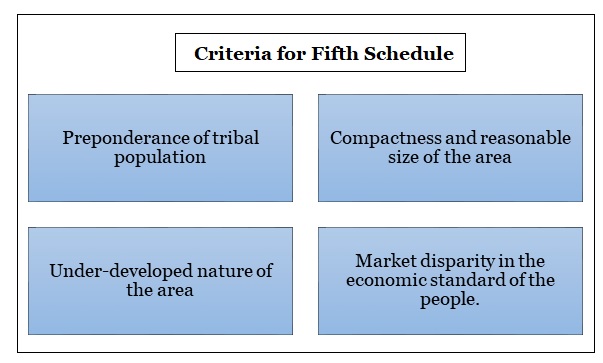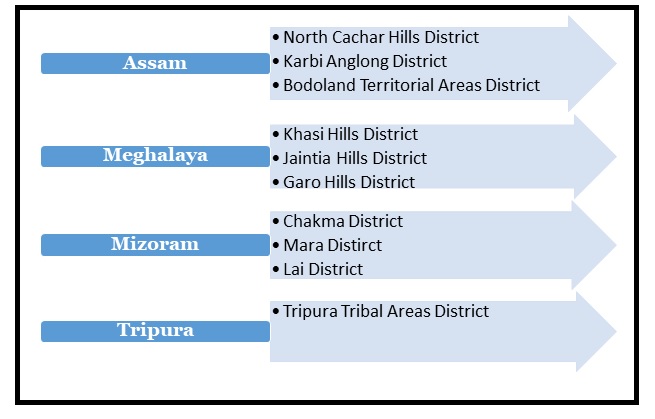The candidates of all parties in the Assam’s tribal majority Diphu Lok Sabha constituency have promised the implementation of Article 244(A) of the Constitution.
|
Diphu |
|
What is Article 244 of the Constitution?
It is in Part X of the Constitution that deals with the application of the provisions of the Fifth Schedule and Sixth Schedule
|
Key aspects |
Fifth Schedule |
Sixth Schedule |
|
About |
It shall apply to the administration and control of the Scheduled Areas and Scheduled Tribes in any State other than Assam, Meghalaya, Tripura and Mizoram |
It shall apply to the administration of the tribal areas in Assam Meghalaya, Tripura and Mizoram. |
|
Purpose |
|
Considering the distinct life and outlook of the tribals in the North-East (erstwhile State of Assam), the Constituent Assembly recognised the necessity of a separate administrative structure for the tribals in the region |
|
Application |
Scheduled areas are predominantly inhabited by tribes specified as “Scheduled Tribes” and located in the states of Andhra Pradesh, Telangana, Bihar, Chhattisgarh, Gujarat, Himachal Pradesh, Madhya Pradesh, Jharkhand, Maharashtra, Orissa and Rajasthan |
Currently there are 10 Autonomous District Councils in North East |
|
Power |
The President is the authority to declare any area as a Scheduled Area or renounce a Scheduled Area or part of a Scheduled Area as a non-Scheduled Area in consultation with the Governor of the concerned State |
Governor of the State is empowered to determine the area or areas as administrative units of the Autonomous Districts and Autonomous Regions. |
|
Special mechanism |
Tribal Advisory Council is constituted by Governor of a State having Scheduled Areas to deal with the welfare and advancement of Scheduled tribes in states. |
Autonomous District Councils, and Regional Councils endowed with certain legislative, executive, judicial and financial powers |


|
Autonomous districts |
|
|
Pre Independence |
Post-Independence |
|
|
Indian Express- What is Article 244A of Indian Constitution?